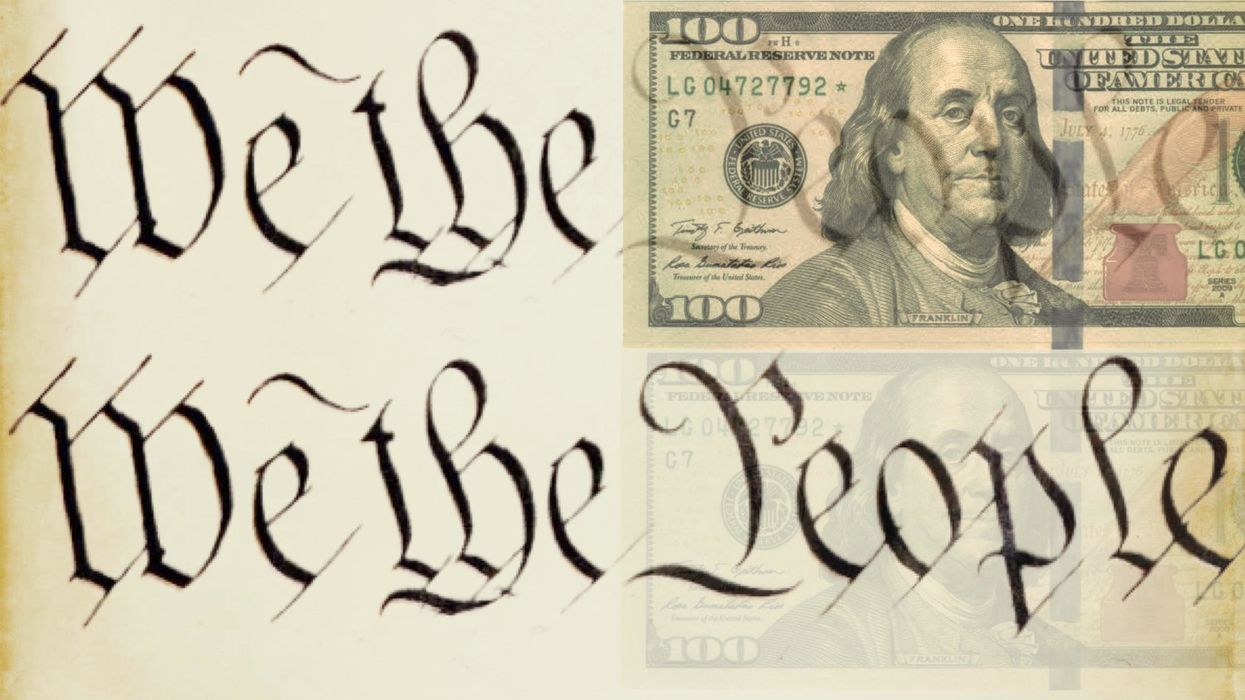The tragedy of the coronavirus pandemic, and the most recent high-profile killings of Black people by police, have laid bare America's biggest policy shortcomings and inequities. A growing number of voices are correctly arguing that our shared dream of returning to normal must be about a new normal — one providing everyone, not just the few who are wealthy and white, with real economic and health security.
However obvious the wake-up calls of Covid-19 and renewed demands for racial equity may seem, they will not change the political playbook of wealthy interests — and policy change won't come easy. Remember when the bailed-out banks that caused the 2008 economic crash turned around and spent record sums to weaken the regulations needed to prevent another collapse? That's the world we live in.
To build the new normal, we must eliminate a key structural barrier to achieving the policies we need: the undue influence of big money in our politics. These days, it seems almost everyone understands this. We just need to double down on addressing it, as called for most recently by the bipartisan Commission on the Practice of Democratic Citizenship.
Since the 1976 Buckley v. Valeo decision, the Supreme Court has equated money with speech under the First Amendment. The problem with this interpretation is that it favors the political speech of those who give big political donations, silencing the rest of us.
The infamous Citizens United v. FEC decision a decade ago, among others, only made matters worse. The court now effectively prohibits the best solutions to combating big money's power, including election spending limits.
A federal public campaign financing program would help a lot, and Congress should act when it can. But it's also an incomplete solution in a world where unlimited money can be used to influence the electoral process. While it's much better than nothing, that cannot be America's standard for the functioning of our democracy.
What we ultimately need, if we hope to shift political power to everyday people to the degree necessary, is a 28th Amendment to the Constitution — one enabling more robust state and federal regulation of the financing of political campaigns.
As a nation we value the concept of "one person, one vote," yet the Supreme Court has told us that political equality is somehow off limits when it comes to how elections are funded. History suggests we shouldn't wait for the court to change its mind. In the 45 years after its decision denying women the right to vote, and before ratification of the 19th Amendment 100 years ago guaranteeing women that same right, 25 justices were replaced.
A change in the Constitution, like democracy itself, won't by itself bring us to a promised land of political and racial equality. But it would unquestionably open up to voters and lawmakers a much broader range of tools for eliminating today's loopholes, and the other vulnerabilities in the system that wealthy interests will surely discover and exploit tomorrow.
From there, we could look forward to more diversity in our legislatures, more political power for people with low and middle incomes — and, in turn, more laws that address racial inequity. This is why the Movement for Black Lives calls for a campaign finance constitutional amendment and public election financing in its policy platform.
Promoting a 28th Amendment should have been at the top of President Trump's agenda. The blurry line between criminal bribery and political giving is a big part of creating the swamp that both parties claim they hope to drain.
As a senator from Delaware back in 1997, Joe Biden called the Supreme Court's Buckley ruling "supremely wrong" and declared that "the single most important thing that has to be done from a purely practical sense is to amend the Constitution." Such an amendment is now at the top of his presidential campaign's political reform platform. Should he win, Biden must declare its realization a national imperative.
Ultimately, though, hope rests with us. As this moment makes clear, people must organize for the change we need. There's been substantial progress in Congress and in the states but we're still short of the necessary two-thirds support from Congress — as well as the three-fourths of state legislatures, who would be called on to ratify the new constitutional language if Congress acts.
The suffragists and abolitionists of yesteryear didn't give up when they didn't have the votes; they ramped up. Movements change political dynamics.
The effort to win a constitutional amendment is a rare opportunity to unite Americans no matter our home states, birthplaces, skin color, political party or faith. A majority of Americans — Democrats, Republicans and independents alike — support an amendment. They just need to be activated.
Money's hold over policymaking remains at the root of many of our most pressing problems, and the Supreme Court has locked the toolbox of most-effective solutions. Like combatting racism, fighting for better wages and working conditions, and addressing the climate crisis, we simply must have this fight. And winning a campaign finance amendment would help deliver wins on those other issues.
The policy failures brought to light by the pandemic, and by black and brown voices in the streets, are the call to get this amendment over the finish line.



















Trump & Hegseth gave Mark Kelly a huge 2028 gift